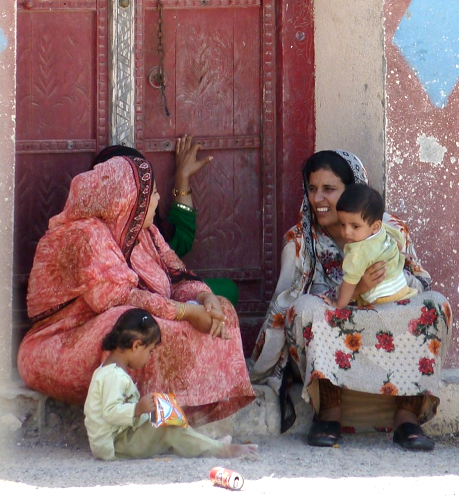Human Rights Violations Resulting from Gender Discrimination in Oman’s Nationality Law
Statement by the Global Campaign for Equal Nationality Rights to inform the Universal Periodic Review of Oman
The Global Campaign for Equal Nationality Rights would like to respectfully raise the issue of gender discrimination in Oman’s nationality law for consideration during this second cycle of the country’s Universal Periodic Review.
The Global Campaign for Equal Nationality Rights (the Global Campaign) is a coalition of international and national organizations that promotes gender equality in nationality laws, so that women and men can confer, acquire, change and retain their nationality on an equal basis. The Campaign includes a Steering Committee of Equality Now, Equal Rights Trust, the Institute on Statelessness and Inclusion, UNHCR and Women’s Refugee Commission.
Oman’s nationality law, which discriminates on the basis of gender, violates the human rights of women, their children and their spouses in violation of the state’s human rights obligations and commitments to uphold international human rights treaties.
 According to Royal Decree No. 38 of 2014, amending the Omani Nationality Law, issued by the Sultan of Oman, an Omani mother can only confer nationality on her children if the father was Omani but became stateless, or if the father is unknown, while Omani men can automatically confer nationality on their children. Women are also denied the right to confer their nationality to foreign spouses on an equal basis with men, as their spouse must wait 15 years to be naturalized while the foreign spouse of an Omani man must wait 10 years.
According to Royal Decree No. 38 of 2014, amending the Omani Nationality Law, issued by the Sultan of Oman, an Omani mother can only confer nationality on her children if the father was Omani but became stateless, or if the father is unknown, while Omani men can automatically confer nationality on their children. Women are also denied the right to confer their nationality to foreign spouses on an equal basis with men, as their spouse must wait 15 years to be naturalized while the foreign spouse of an Omani man must wait 10 years.
Such distinctions in the transmission of citizenship violate the right to equality, and constitute discrimination on the basis of sex in breach of international law, including the Convention on the Rights of the Child (CRC) and the Convention on the Elimination of All Forms of Discrimination Against Women (CEDAW), which explicitly obliges the state to ensure that women enjoy equality in the area of nationality in Article 9. While Oman has placed a reservation against Article 9 paragraph 2 of CEDAW, we consider this reservation to be contrary to the object and purpose of the Convention. By distinguishing between men and women in respect of their ability to confer nationality, the Omani Nationality Law contravenes the general obligation to eliminate all forms of discrimination against women, which arises under Article 2 of CEDAW.
In addition to violating women’s right to equality, as previously stated, sex discrimination in nationality laws can result in significant violations of children’s and spouses’ rights, as well as causing further violations of women’s human rights. Human rights violations that are directly linked to sex discrimination in nationality laws include statelessness; lack of access to public education, healthcare and other services; child marriage; increased risk of gender-based violence; unemployment and poverty; and social alienation and psychological damage.
During Oman’s first Universal Periodic Review at Session 10 of the First Cycle, in January 2011, multiple recommendations were made regarding enacting legal reforms to guarantee women equal rights to confer nationality to children, regardless of the nationality of the father, and to guarantee equal rights to confer nationality to foreign spouses. Oman noted but did not accept these recommendations. Additional recommendations were made with respect to the advancement of gender equality, which were accepted by Oman.
In Oman’s national report for the first cycle of its Universal Periodic Review, Oman stated that it is “committed to continue to develop and improve its record and performance in protecting and promoting human rights” and that “women participate fully as equals in all spheres of life and are encouraged to do so by the government.” It also reported that it is “committed to continuing to examine all areas of life in order to enhance the equality of Omani women, as ratification of the International Convention on the Elimination of All Forms of Discrimination Against Women has indicated.”
Despite the state’s acknowledgement of the need to advance gender equality and women’s equal rights, Oman’s subsequent failure to amend gender discrimination in its citizenship law continues to result in violations of the human rights of Omani women, their children and spouses by the State.
Based on the significant human rights violations resulting from gender discrimination in Oman’s nationality law, we respectfully make the following recommendations:
I. Fully promote, respect, protect and fulfil its obligations under international human rights law. In particular, ensure that its national laws, policies and practices fully comply with CEDAW and CRC, and with general principles of equality and non-discrimination enshrined in international treaties.
II. Recognize the fundamental human right of all human beings to a nationality, without discrimination.
III. Take immediate steps to amend/repeal all discriminatory provisions that prevent women from acquiring, retaining and transferring citizenship on an equal basis with men and ensure the effective implementation of the law.
IV. Recognise the independent right of each parent to provide citizenship based on lineal descent to their children, and the right of both women and men to confer citizenship to their foreign spouse on equal terms.
